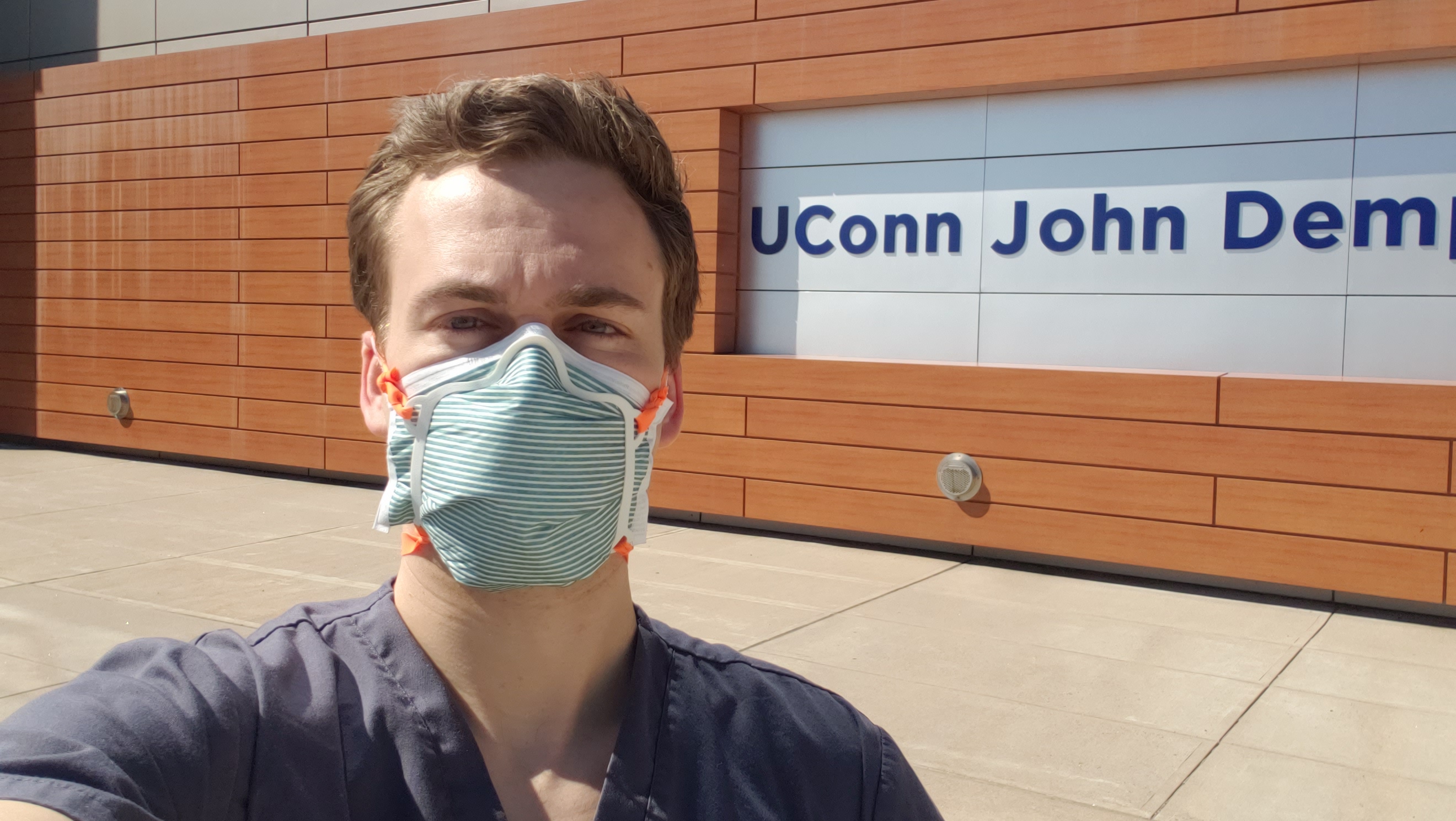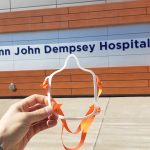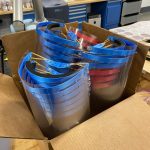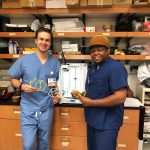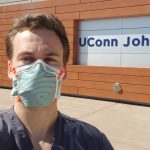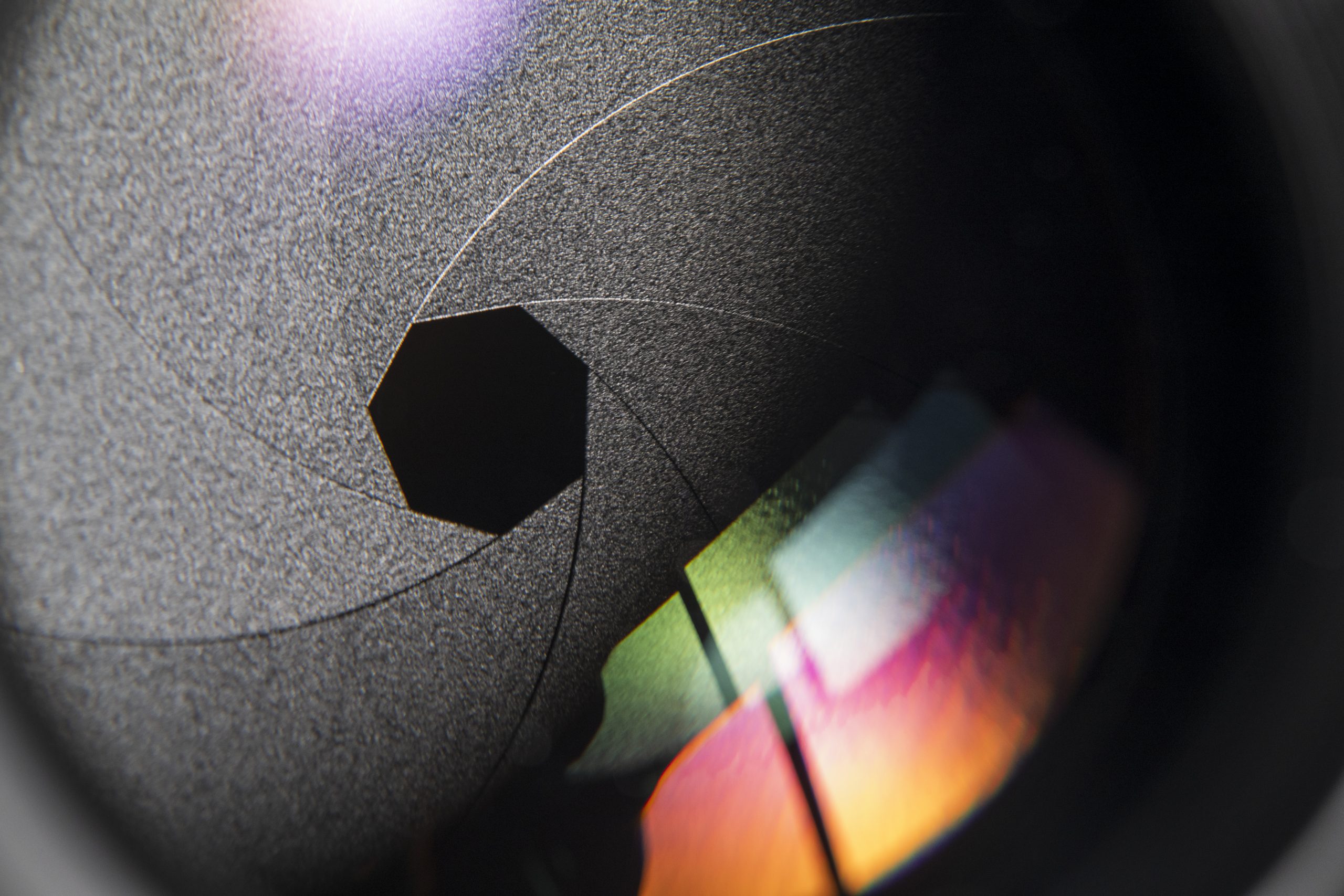The collaborative efforts of medical doctors from UConn Health with engineers, scientists, and researchers from Storrs will soon result in an increased supply of personal protective equipment (PPE). These items, such as masks and face shields, will be used by those on the frontline of the fight against COVID-19 at UConn John Dempsey Hospital in Farmington.
“In times of great need, the knowledge that can be found across the disciplines of a broad-context research university like UConn can prove very beneficial, and in fact, life-saving,” says UConn President Thomas Katsouleas. “I am very proud of the research and hands-on work that is being done by our faculty and staff to help make the fight against COVID-19 a safer one for our health care workers.”
“From everyone at UConn Health, I want to express my thanks and gratitude to the great minds in both Storrs and Farmington. Many of them have put their own personal work and research aside to benefit our health care workers. We are all this fight together,” says Dr. Andrew Agwunobi, the CEO of UConn Health and Executive Vice President for the Health Affairs.
A newly developed frame by Dr. Chris Wiles, a first-year anesthesiology resident at UConn Health and a native of New London, will make usable a supply of 40,000 facemasks that UConn Health had in storage, but which needed adjustments before they could be used by health care workers. Dr. Wiles got his idea off the ground with the help of Dr. Michael Baldwin (CLAS ’94, Med ’04), an assistant professor of radiology, working with the Office of Logistics Management.
“My work on this project is really an extension of my medical role,” says Baldwin. “As a radiologist, I meet a lot of people in the hospital and I was made aware of the shortage of masks. These were not made for medical use, but they were the perfect fabric. They just did not adhere to the face in the cheek area.”
A series of calls with researchers and scientists from Storrs began, and representatives from the Emergency Department of UConn Health were included. They were the ones that brought in Wiles, who has a keen interest in 3-D printing.
“The CDC (Centers for Disease Control) is allowing these masks to be used if they can fit on a face tightly, and that is the solution we were looking for,” says Wiles.
Wiles began his research and saw a design that used hooks and rubber bands.
“I didn’t want it to be a rubber band going around the whole head, so I added loops instead of hooks and made the frame five percent shorter,” says Wiles. He also moved the top two loops down further in order to make the pressure point against the cheek and form a seal.
“I did a few prototypes and by Friday (March 27), we were ready to test,” says Wiles. The test involves a subject wearing the mask and seeing if they can still talk, breathe, and even smile while an odorous spray is in the air. It is an all-out attempt to make sure the mask has a seal – and with the help of the Wiles-designed frame, the previously unusable masks passed the tests.
“We brought to solution immediately to production using the scientists and engineers in Storrs,” says Dr. Ibrahim Elali, an assistant professor of nephrology at UConn Health and the president of the UConn Health chapter of the American Association of University Professors. “They had the knowledge and technology to use 3-D laser cutters and without them, we could not of have made these frames happen.”
Now, it is an around-the-clock effort to find anyone with a 3-D printer to generate the frames. Those interested in helping out with the effort, should contact covid19donations@uchc.edu
Wiles is doing it from home on a basic 3-D printer he owns. The call is out and has been answered by other members of the UConn community, businesses, and even high schools and elementary schools that have the technology. Among the groups that have joined in the production is the bioskills laboratory at UConn Health’s Musculoskeletal Institute, under the director of Dr. Gus Mazzocca, and businesses like Norcom Mortgage and Insurance in Avon.
These masks and frames will be put into use when the current inventory of tight-fitting masks is exhausted. The goal is to make 10,000 frames, which will be reusable with new masks after they are properly cleaned and sanitized.
Another collaborative effort between Storrs and Farmington is the production of face shields used by health care workers, which are also in short supply.
The team in Farmington has been working with Joseph Luciani, the Director of the Proof of Concept Center and Quiet Corner Innovation Cluster, located in the Innovation Partnership Building at Storrs.
“I received an email from the Dean of Engineering (Kazem Kazerounian) about the shortage of face masks [asking], Can somebody come up with something clever,” says Luciani. “I immediately started looking up what was out there, and there is a growing community out there working on the structure of face masks in 3-D printing.”
Right now, Luciani is working on trying to produce as many shields as possible because home printers cannot keep up with the demand.
“Even if we get to producing one per hour, that just can’t be enough,” says Luciani, who has already delivered a small amount of shields to UConn Health. “My current focus is on scalability and being faster and more efficient.”
Although the country and the world are suffering the effects of the global coronavirus pandemic, the spirit of cooperation among the UConn community has not gone unnoticed.
“In times of crisis, a public academic medical center such as UConn Health provides critical care to our community,” says Elali. “We bring all of our skills, talents, and commitment together for the public good. Not only are we caring for patients, but we are working with colleagues from UConn Health and the UConn campus in Storrs to problem-solve for the public good. The value of our public health care center and university has proven again and again that it is the best investment a society can make for a healthier future and for the good of the public.”
“Our AAUP colleagues and other providers at UConn Health are on the front lines of caring for the public,” says Thomas Bontley, a professor in the philosophy department and president of the AAUP chapter in Storrs. “We’re proud to lend a hand and collaborate with UConn Health faculty to develop and produce much needed PPE. Together we can overcome this challenge.”
